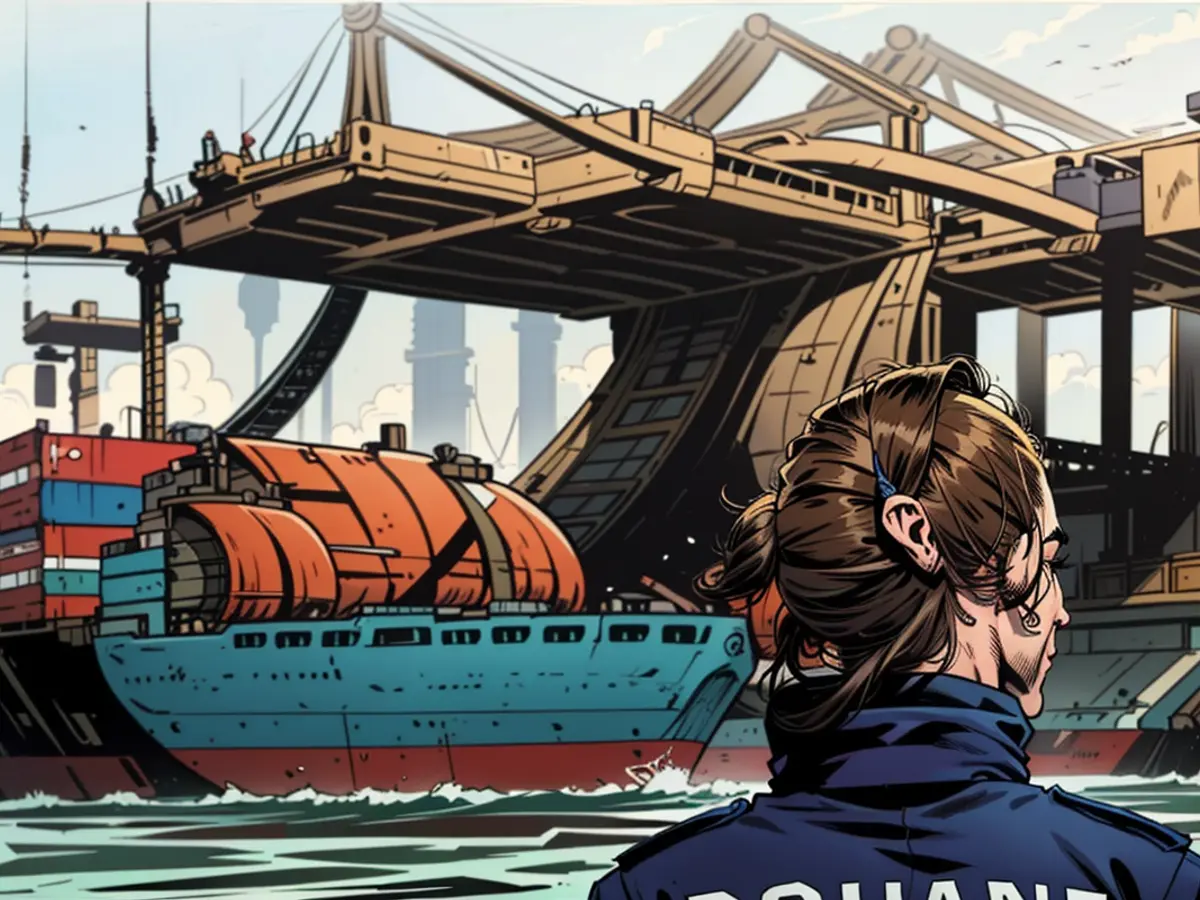Drugs - Netherlands: Customs successful in the fight against cocaine imports
The Dutch customs sees itself on a successful course in its intensified fight against drug imports through the country's ports. In the first half of 2024, 16 metric tons of cocaine were seized in Dutch ports, compared to 28 metric tons in the previous year, according to the customs in Rotterdam. A similar trend is observable in other major ports in Northwest Europe.
Dutch ports have become less attractive for drug trafficking masterminds due to the Netherlands having liaison officers in Latin American source countries and collaborating with the customs in Brazil. Specialized teams and techniques are also being employed, the customs added.
Containers from high-risk countries are now being unloaded in a separate area in the ports and thoroughly inspected. Suspicious containers are scanned as quickly as possible.
Port controls are now being communicated to the involved personnel on short notice and the number of pre-informed people has been reduced. This is intended to prevent criminal networks from learning about inspections through bribed port and customs employees. The risk of criminal infiltration is thus being reduced. Drug cartels pay large sums of money to port employees for services and information.
In total, more than 69 metric tons of cocaine were seized in the Netherlands in the previous year, most of it in the ports of Rotterdam and Vlissingen. In the port of Rotterdam, the largest cocaine find of the customs in this year was made. In a container coming from Ecuador with bananas, which was supposed to be transported to Germany, customs officers discovered 3.6 metric tons of cocaine in street value of over 270 million Euro.
- The success of the Dutch customs' anti-drug efforts has led to a decrease in cocaine seizures in Northwest Europe's major ports, including Rotterdam in the Netherlands.
- In addition to its collaborations with Brazil's customs, the Netherlands has placed containers from high-risk countries in a separate inspection area in its ports to combat drug trafficking.
- Despite the reduced number of pre-informed personnel to prevent bribes, crimes related to drugs continue to occur in ports, as demonstrated by the large cocaine find in a Rotterdam container from Ecuador worth over 270 million Euros.
- Authorities in the Netherlands are actively working to combat drug-related crimes in their ports, as shown by their continued successful seizure of drugs, such as the 16 metric tons of cocaine seized in the first half of 2024.






